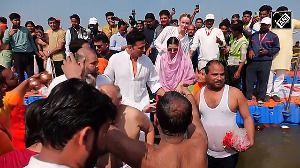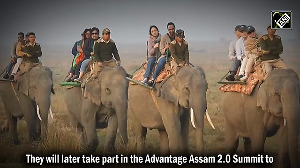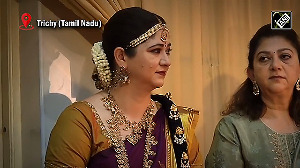Prime Minister Girija Prasad Koirala has rejected Maoist chief Prachanda's proposal to immediately declare Nepal a Republic by abolishing the monarchy, saying the former rebel should wait until the constituent assembly elections expected in June.
During a high-level meeting in Kathmandu with the prime minister on Friday, Prachanda asked Koirala to immediately abolish the monarchy and convert Nepal into a republic through a Parliamentary declaration.
However, Koirala rejected the proposal and asked Prachanda to have patience until the constituent assembly elections, Nepali Congress central committee member Arjun Narsingh K C said.
During the meeting, Prachanda also asked Koirala to immediately form an interim government inclusive of the Maoists so that election to the constituent assembly polls could be held on time.
Nepal's Seven Party Alliance has agreed to decide the fate of the monarchy through the constituent assembly polls to be held by mid-June this year.
Koirala is learnt to have told Prachanda that the government has to take into account the national and international situation before taking such decisions.
Prior to the meeting, Prime Minister Koirala met Chinese Ambassador to Nepal Sun Heping, who said that the Maoists must change their current behaviour before they could be included in the government.
Heping welcomed the government's peace initiative and said the move to bring the Maoists to the political mainstream was positive. He also reiterated China's continued support to Nepal's peace and development, sources close to the prime minister said.
Meanwhile, Nepali Congress Party has asked the government to create a 'fearless environment' and ensure peace and security in the wake of the Maoists' arms display in public around the country.
"The Maoists should fully abide by the peace agreements they signed with the government and the government must take seriously the violations by the Maoists of the peace accords," the Nepali Congress party said during its central committee meeting on Friday.






 © 2025
© 2025